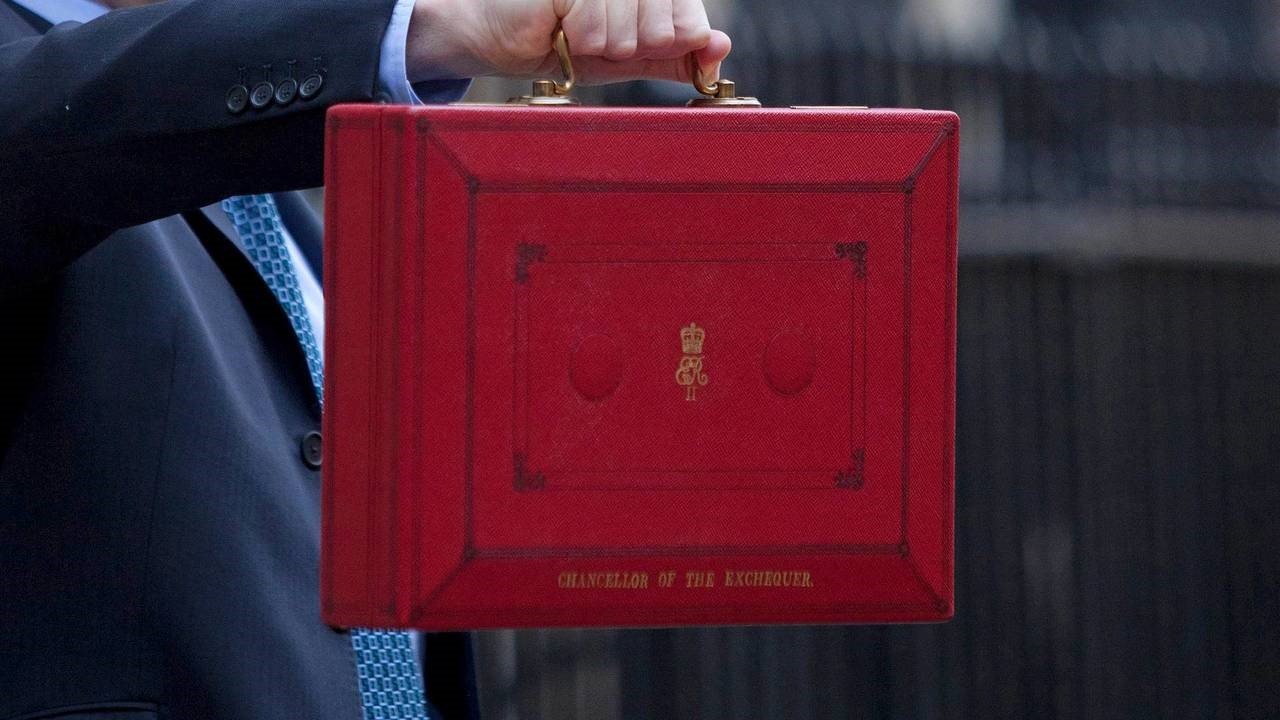Budget leaves retail sector disappointed with support offered by the Chancellor
Posted on in Business News , Cycles News
Industry experts and trade associations in the retail sector have been expressing their disappointment at the support offered to retailers in the Chancellor’s Budget.

Despite Jeremy Hunt delivering what he called a “Budget for growth” many in the retail sector have been left underwhelmed.
The Federation of Independent Retailers (the Fed) said the Budget failed to address several factors that are threatening the very existence of many smaller retail businesses.
It cited the lack of support on high energy bills as a major disappointment for smaller retailers, and although a continued freeze on fuel duty was of some comfort, raising the tax on alcohol and tobacco was seen as another blow for some in the sector.
The Fed’s National President Jason Birks said: “I and other trade associations wrote to the chancellor and the business secretary just last month imploring them to provide the necessary help for struggling small businesses.
“It is, therefore, extremely disappointing that our calls for assistance have not been answered.”
Mr Birks said the tax rises on alcohol and tobacco will also lead to an increase in illicit trading, which again is harmful to honest shopkeepers and fuels organised crime.
He added: “The chancellor has shown a complete disregard for shops that are the lifeblood of their local communities.
“I make no bones about it – we will see many forced to close their doors for good as businesses become unviable in the current economic climate.”
Under the Energy Bills Discount Scheme, the government is providing a discount of 1.9p per kWh for electricity, which according to Association of Convenience Stores (ACS) research will reduce an average eligible convenience store’s energy bill by around £1,520 for the year. The ACS has warned that unless more support is provided, up to 7,000 stores could be forced to close.
Bira, the British Independent Retailers Association, said the forecast for the future from the Spring Budget looks brighter - but warned that businesses still face a rough few months ahead. It said it hopes the forecast for the future helps improve customer confidence and will drive economic growth.
Andrew Goodacre, CEO of Bira said: "The Chancellor was upbeat about the economy in that we are likely to avoid a recession and forecast growth is better than expected. We wanted to hear about plans for growth and we were told about new investment zones, increased capital tax allowances for business investment, and £200M in local regeneration.
"These are positive measures, but in long term are not necessarily addressing the challenges faced by businesses on the high street today.
“We were not expecting much from the Budget today and while we are pleased with the focus on growth, many of the big announcements are focused on long-term investment.
"We hope that the better economic forecasts and more people returning to work will improve consumer confidence – often the key driver for high street economic growth. Unfortunately, though there was nothing to ease the fears of indie retailers dealing with the pressures of today.
"The pressures of inflation, high energy costs, and energy support are set to reduce by 95% in April, and wages are set to increase by 9% in April. This budget may improve consumer confidence, but it does little to boost the confidence of businesses on the high streets throughout the UK," he added.
ACS chief executive James Lowman also condemned the Chancellor’s failure to put in place meaningful support. “A Budget focused on growth and investment will come as no comfort to those who will have their entire profit margins wiped out this year by excessive fixed energy contracts,” he said.
“Convenience stores have been left out in the cold by the Chancellor, being left to face crippling energy bills by themselves and putting thousands at risk. Difficult decisions will have to be made in the coming months by independent retailers about the future of their businesses, which will have a negative impact on investment and reduce the number of available jobs in communities, all while bolstering the profits of energy companies.”
Chris Brook-Carter, chief executive of the Retail Trust, was more receptive to the energy bill measures.
“The Retail Trust has backed calls by Martin Lewis to postpone the 20% rise in the Energy Price Guarantee and we believe today’s announcements should go some way to reassuring anyone worrying about rising energy bills or having to cope with sky-high childcare costs. We’re seeing a growing number of retail workers applying for financial aid from the Retail Trust or visiting our website to access financial health support, so we understand the pressures that millions of working people are facing right now when it comes to dealing with these kinds of costs.”
Jacqui Baker, partner and head of retail at auditing firm RSM UK, reiterated this: "There were no sweeteners in The Budget for retailers who are still facing tough trading conditions as household incomes remain under pressure with the high cost-of-living.
"The silence on VAT relief - which would have boosted tourism, footfall and sales from international visitors - and no mention of any longer-term help on business rates reforms is disappointing."
Helen Dickinson, Chief Executive of the British Retail Consortium, said: “In the face of volatile demand caused by high inflation and low consumer confidence, measures to support households with the cost of living, such as the ongoing energy bill support and changes to childcare costs, are welcomed. However, many businesses are weighed down by a myriad of higher costs right through the supply chain.
“Government must do more to limit one of the biggest drags to retail investment, which is oncoming regulatory burdens heading down the track, or risk a crash in business investment and further inflationary pressures.
“The Chancellor understands the need to train people to re-enter the workforce, yet he missed a key opportunity to fix the issues with the Apprenticeship Levy system that would support this very goal. Over the last three years, businesses have lost £3.5bn in unused Levy funds. To break this cycle of wasted investment, it is vital that Government allows businesses to use their hard-earned Levy funds for a wider array of skills courses.
“The broken Business Rates system remains a drag on business investment, jobs, and economic growth. Rates must be paid in full whether firms are making a profit or a loss. This makes Business Rates the final nail in the coffin for many struggling stores, shutting shops, costing jobs and preventing new stores openings. The Chancellor should make good on the Conservative 2019 pledge to reform Rates and lay out a clear roadmap for future reforms.”
Amber Mace, UK&I Consumer Products & Retail Sector Leader, commented: “The Chancellor’s announcement of full expensing of capital expenditure for the next three years will be welcome news for consumer products and retail businesses, with the move at least partially offsetting the corporation tax rate rise from 19% to 25% next month.
“Towns and cities that are dependent on their High Streets have been particularly affected by the squeeze on consumer spending, but details of 12 new proposed UK Investment Zones could see accelerated development, time-limited tax benefits and wider support for local growth within towns and cities across the UK. This, combined with overseas R&D costs remaining allowable for another year, should also have a positive impact for the sector.
“The labour market measures also appear supportive, with retail likely to welcome childcare reform in helping both current employees and others looking to return to work – although the benefit will not be felt for some time given the staged rollout.”
For businesses, the Chancellor said the government would “lower business taxes and reduce energy prices”. He said the UK would have the lowest headline rate in the G7 despite the rise in corporation tax to 25% in April 2022, from 19%.
He also confirmed that the government would extend the Energy Price Guarantee (EPG), which caps the bills at £2,500 for a typical household, for a further three months until June.





















